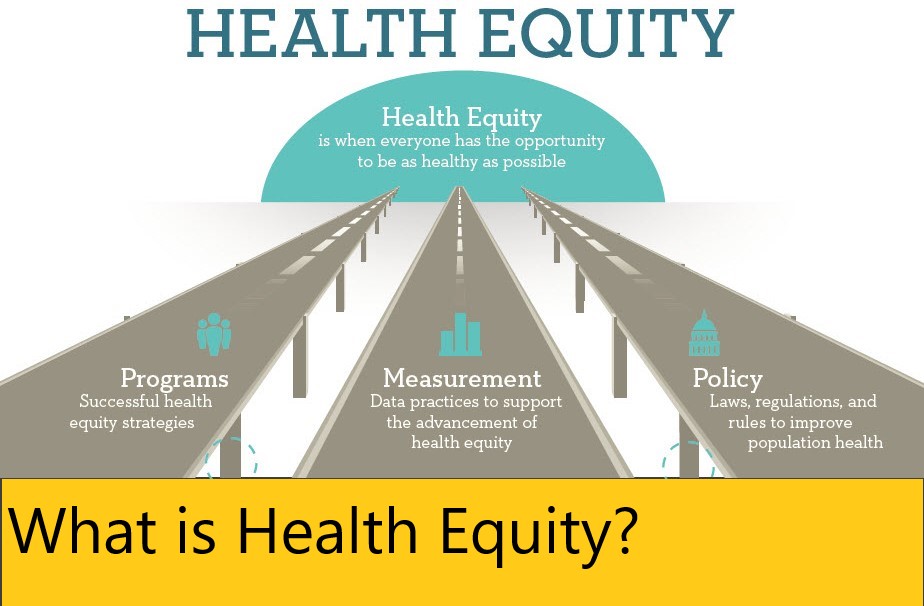What is Health Equity? – Health equity is the state in which everyone has a fair and just opportunity to attain their highest level of health. Achieving this requires ongoing societal efforts to:
- Address historical and contemporary injustices;
- Overcome economic, social, and other obstacles to health and health care; and
- Eliminate preventable health disparities. [1,2]
To achieve health equity, we must change the systems and policies that have resulted in the generational injustices that give rise to racial and ethnic health disparities. Through its CORE strategy, CDC is leading this effort, both in the work we do on behalf of the nation’s health and the work we do internally as an organization.
Health disparities are preventable differences in the burden of disease, injury, violence, or opportunities to achieve optimal health that are experienced by populations that have been disadvantaged by their social or economic status, geographic location, and environment.[1] Many populations experience health disparities, including people from some racial and ethnic minority groups, people with disabilities, women, people who are LGBTQI+ (lesbian, gay, bisexual, transgender, queer, intersex, or other), people with limited English proficiency, and other groups.
Reaqd More : Harrisandbaker.com

Across the country, people in some racial and ethnic minority groups experience higher rates of poor health and disease for a range of health conditions, including diabetes, hypertension, obesity, asthma, heart disease, cancer, and preterm birth, when compared to their White counterparts. For example, the average life expectancy among Black or African American people in the United States is four years lower than that of White people.[3] These disparities sometimes persist even when accounting for other demographic and socioeconomic factors, such as age or income.
Communities can prevent health disparities when community- and faith-based organizations, employers, healthcare systems and providers, public health agencies, and policymakers work together to develop policies, programs, and systems based on a health equity framework and community needs.
Factors Affecting Health Equity (Social Determinants of Health)
Social determinants of health are the conditions in the places where people live, learn, work, play, and worship that affect a wide range of health risks and outcomes. Long-standing inequities in six key areas of social determinants of health are interrelated and influence a wide range of health and quality-of-life risks and outcomes. Examining these layered health and social inequities can help us better understand how to promote health equity and improve health outcomes.
